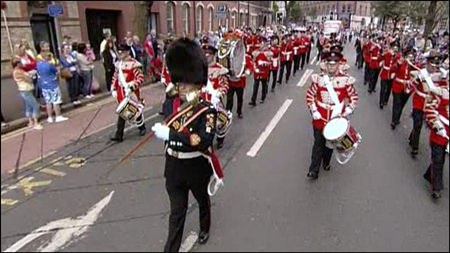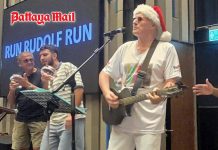
Good shots, and even great shots, can appear any time. If you are not going to miss the chance of a lifetime, the first tip is to make sure you have a camera with you, or, and I struggle to say it – a high quality smartphone!
However, how many times have you thought to yourself, “Damn! I wish I had the camera right now!” This is after the shot of a lifetime just happened before your eyes. A shot that could have kept you in champagne for the next three months.
Now great shots can be shots that just somehow epitomize life in Thailand, for example. It could be a katoey posturing on Beach Road, or even the buffalo with two birds standing on its back. Always remember that you are living in a land that your countrymen save up for 12 months just to get here for a holiday. You (we) are lucky and should not let photographic opportunities pass us by.
So this week, let’s look at a few specific examples of “how to” when you are looking to record those “once in a lifetime” images.
Every city, town or village anywhere has its parades. And there are plenty of them here. Now, have you ever tried to record the parade? It is actually very difficult. The naked eye sees a long procession of musicians, marchers and the like as they pass by, but the camera sees only one slice of the action about 1/60th of a second long!
There is only one secret word for parades, and that’s ‘height’. You have to get a high viewpoint to successfully record the action, and preferably use a long lens. By shooting down the oncoming procession you will get several squads of musicians, marchers, etc., all on the one frame. By using the telephoto lens you “compress” the action and get more in the one photographic frame. Honestly, if you can’t get up high don’t take parades. You will be disappointed with all ground level shots.
All tourist towns have their nightlife, and we have the odd nocturnal events and places. Lots of lights, neon signs and flood-lit fountains are the norm for this type of photograph. The secret here is a Wide angle lens with an aperture down around f 1.8. This is the time to set your digital to 800 ASA, or 400 ASA at least. The other secret is not to use your flash. Now I fully realize that this is photography after dark, but the whole concept is to let the attractions provide the illumination, rather than blasting it with your flash burst. If you try and take neon light using flash you will totally wash out the neon and again get very disappointing results.
One of the more challenging travel situations is the summer beach holiday. It is very difficult to photograph the beach and not end up with a washed out look in the final photographs. The secret here is a Polarizing filter and the time of day you shoot. This is where the Polarizer works so well, especially with the glare from the sand. The Polarizer will also give you a blue sky to contrast the yellow sand. The time of day is also just as important. Shoot early morning or late afternoon when the sun’s rays are skimming across the beach and the tracks and ridges in the sand will show up as shadows.
Some of you will be exponents of the wilderness type holiday, trekking and camping and taking in the vast grandeur of breathtaking natural wonders. The secret here is a wide angle lens, look for low viewpoints and set the ASA on 50 or 100, plus a tripod if you can. The idea here is to use the lens at around f16 or f22 to maximize the depth of field. This in turn and the slow ASA setting, will require longer exposures – hence the tripod. Shooting in this way will give you maximum detail in the shot, maximum content and visual theater. Finally, shoot early morning or late afternoon as well to get the dramatic shadow effects and really give the impact to the Grand Canyon!
 |
 |
 |





